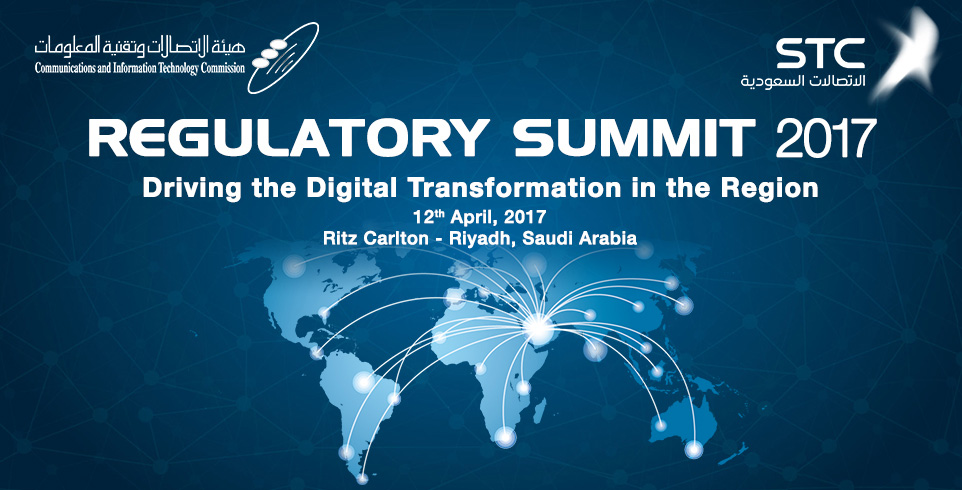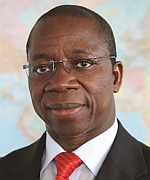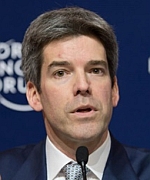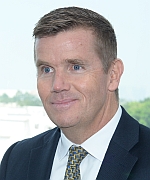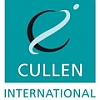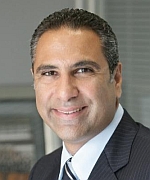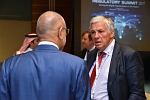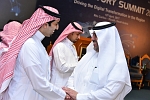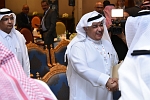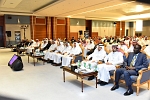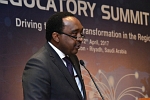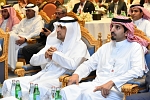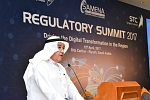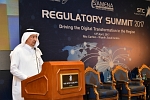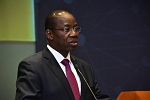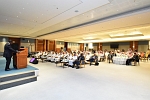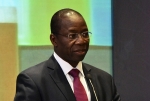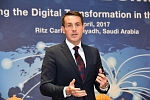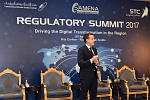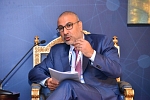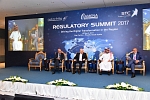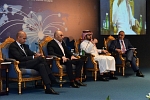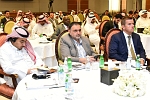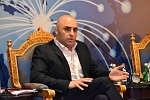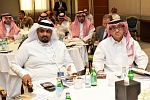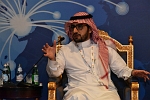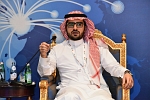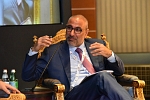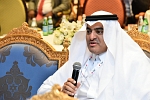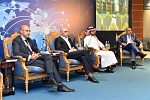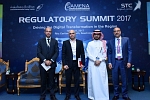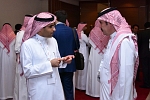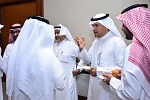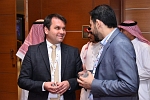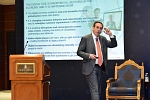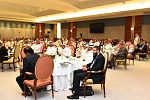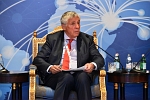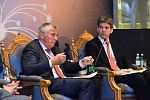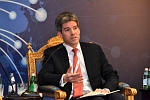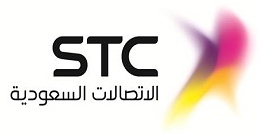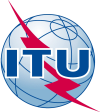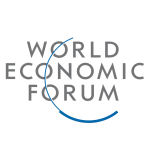“Driving the Digital Transformation in the Region”
SAMENA Telecommunications Council’s Regional Regulatory Summit is a region-wide conference, being held in Saudi Arabia in collaboration with the Saudi Communication & Information Technology Commission (CITC), to promote public-private co-operation for digital transformation in the region. It will bring together public-private stakeholders and government delegations.
The primary aim of the Regulatory Summit is to help understand imperatives in public sector and private sector cooperation in view of Saudi Arabia's national ICT vision as well as realities and transformation trends in regional digital development.
The Regulatory Summit will explore ways for the public sector to be closely engaged with the private sector, and will serve as a platform for the regional industry's leadership to convene and bring the future of mobile market competition, technologies and services, and stakeholder priorities into perspective. Such areas have to be looked into diligently and should accommodate the imperatives to also address underlying industry needs that revolve around digital services, data regulation, spectrum allocation, and the industry's financial obligations.
By conducting this regional stakeholder activity in Riyadh, SAMENA Council looks forward to supporting the Saudi Vision 2030 in all ways possible, while representing the needs and the issues of the private sector of Saudi Arabia and of surrounding GCC markets.
-- Opening Ceremony --
1 - Vision for ICT Sector Development
2 - ICT Industry Evolution and Regulatory Frameworks in the Digital
Age
Topics of Discussions
- Saudi Vision 2030: An incentive for sector-wide openness and collaboration
- Requirements for achieving sustainable advantages in the telco business
- Agile regulatory frameworks for a sustainable & healthy ICT sector
- Facilitating sustainable access to infrastructure for achieving ICT development objectives
-- Coffee Break --
Transforming toward Digital Economy – Challenges & Opportunities
Topics of Discussion
- How can policymakers and regulators incentivize sector development
- Evolving regulation in a digital world
- Cornerstones for ensuring digital inclusion and a healthy ICT ecosystem
- Transformative elements of modern policy-making to enable digital services and emerging technologies
-- Prayer Time Break --
Digitization as an enabler of socio-economic innovation and disruption in the telecoms/ICT industry
Topics of Discussion
- Evolving regulatory roles in view of Sustainable Development Goals (SDGs
- Spectrum harmonization in view of 5G and regional digital transformation needs
- Strategic components of an ideal spectrum policy for the region
- OTT impact on operators’ business
Closing remarks and brief closing ceremony
-- Lunch --

Dr. Gregg Rowley
Vice President Corporate StrategSaudi Telecom Company

Steven Plimsoll
Chief Digital & Data OfficerStrategy&
“Driving the Digital Transformation in the Region”
Event Coverage & DiscussionsSAMENA Telecommunications Council's Regulatory Summit 2017, the region-wide Summit for the ICT sector, held in Riyadh, Saudi Arabia, on 12 April, 2017, was organized in collaboration with Saudi Arabia’s Communication & Information Technology Commission (CITC) and hosted by Saudi Telecom Company (STC). With more than 170 attendees in the audience, the Summit's agenda focused on regional digital transformation and on fostering the understanding of evolving dynamics of the ICT environment, which needs to be effectively harnessed through stakeholder co-operation and government-private sector coordination toward fulfilling the Saudi national vision for 2030, in particular, and regional ICT agenda, in general. The key emphasis of the Regulatory Summit was on the need for stakeholder coordination and political will to digitally transform economies of the region.
The Summit brought together a power-packed and impactful group of professionals and visionaries, representing the Saudi Government, the world's leading ICT agencies and cooperation-building organizations, globally renowned business advisors and counselors, and experts in the areas of regulation, business, engineering, and large network operations.
Inaugurated under the theme Driving Digital Transformation in the Region by the Governor of Communications and Information Technology Commission (CITC), HE Dr. Abdulaziz Salem Al-Ruwais, the Summit reiterated the importance of close coordination between telecom operators and governmental agencies, as well as the political will of the government. This was especially important, given the scale of the Saudi telecom and IT market, with total spending in this sector alone reaching US$35 billion during 2016.
In United Nations' leading ICT agency's views, as presented by Mr. Brahima Sanou, Director, ITU-D, digital transformation is a reality and gaining understanding of multiple facets of digital transformation is essential for equipping decision-makers to react promptly and to take effective decisions.
SAMENA Council's own views, presented by its chairman of the board, Dr. Khaled Biyari, offered a reassurance that telecom operators, whose voice SAMENA Council represents, are keen to supporting national ICT visions and extending full assistance to regional policy-makers and regulators, to be able to put in place measureable ICT action plans, and to help achieve ICT development goals that are aligned with international expectations and calls for action on sustainable development. SAMENA Council's CEO, Mr. Bocar BA, had earlier expressed the Council's commitment to collaborating further with the CITC and that SAMENA Telecommunications Council will continue to secure the support of pioneers and professionals from the public and private sectors in order to continue contributing toward the fulfillment of national ICT visions across the region. SAMENA Council's views on digital transformation as being a strategic enabler for supporting new digital services for the public and private sectors, helping attain unprecedented positive socio-economic impact, were also emphasized.
Participation & Exchange of Views
Chairman of the Board of Directors of Saudi Telecom Company, Dr. Abdullah Al-Abdulqader, Chairman of the Board of Directors and CEO of CITRA of Kuwait, HE Engr. Salem Al-Azaynah, Adviser to MCIT Minister Mr. Sultan Al-Malik, and heads of the licensed communications and information technology companies were present at the Regulatory Summit.
Speakers of the Regulatory Summit included Mr. Marc Furrer, ex-President, Swiss Federal Communications Commission, Mr. Dimitris Lioulias, General Manager of Corporate Strategy, STC, Mr. Fouad Halawi, CEO, Virgin Mobile KSA, Mr. Bruce Weinelt, Head of Digital Transformation, World Economic Forum, Mr. Steven Plimsoll, Chief Digital & Data Officer, Strategy&, Mr. Rolando Balsinde, Director Emeritus, McKinsey & Company, Dr. Andrew Arowojolu, Chief Regulatory Officer, Zain Group, Mr. Noel Kirkaldy, Business Development, Public Sector, Advanced Mobile Network Solutions, Nokia, Mr. Zyad Mohammad Al-Khwaiter, General Manager of Regulatory Affairs, STC, Moderators Mr. Philippe Defraigne, Director, Cullen International, and Mr. Bahjat El-Darwiche, Partner, Strategy&, and with the initial roadmap of the discussion of the Summit provided by Mr. Izhar Ahmad, SAMENA Council's Director of Industry Affairs.
SAMENA Council's Regulatory Summit in Riyadh reiterated the need for preparedness and prompt actions for progressing forward in the new eco-system, which must be made sustainable, and all stakeholders, including governments, regulators, ICT service providers, academia, research community, consumers and the civil society, should coordinate and collaborate together to fulfill the demands of the business by creating a new enabling environment. The discussions revealed that revolution underway within the ICT industry is different on many accounts, with infrastructure having become more critical than ever before for the digital economy. Therefore, stakeholders' collaboration with each other on executing measureable action plans is tantamount to meeting success for all.
Specific discussion points raised by the speakers included following:
- Our economies are being shaped up for the future by the digital communications industry. Thus future would be driven by ubiquitous connectivity, smart environments, and complex business choices and opportunities.
- Harmonization of regulations and economic policies of the nations are essential for ICT development, as everything is revolving around ICT services, which are creating a widely visible social and economic impact, aided by digitalization.
- As a global trend, service provisioning has been transformed and is still continuing to change more rapidly. There is an important question now on what we should do to remain relevant for and within the sector.
- Disruptive businesses and approaches are taking us out of our comfort-zone. From the policy, regulatory and business perspectives, they need to be understood as they could be wake-up calls for us to do something different. We are moving to the asymmetrical business models and asymmetrical competition frameworks.
- Cyber security is already a big challenge, but will become ever more so given our progression into the worlds of IoT and AI. There is much need for adopting globalized solutions and practices to counter this challenge as nations are now interdependent.
- Saudi Arabia's Vision 2030 is aligning technology. Maturity has been achieved but more digital services needed to be served by telcos. There are 13 national sub-programs of Vision 2030, focusing on people, process and platforms. The target was to increase broadband services, competitiveness and being a part of the program.
- The new digital economy would have a volume of US$ 60 trillion in the next ten years, and this will have an impact on telcos, which are constituents of a recognizably big industry but not at all a rich industry.
- Telecom operators are redefining their value propositions, rethinking their portfolios, remodeling their core business, and venturing into new growth business. All of these aspects are important to the digital transformation and the operators' central role in driving it.
- Stability is the top requirement for the industry, which can be easily impacted with frequent executive replacements at regulators, changes in governments, and other institutional changes that create a sense of uncertainty. Thus for digital progress to continue, a sense of predictability must prevail.
- New business rules need to be written, including those relating to the regulation of global services that use national telecom networks.
- For the industry to progress forward, awareness of trends happening within adjacent sectors, such as hospitality and transportation sectors, for example, should be gained. Disruptions emerging from such sectors do and will impact the communications industry and its business.
- One of the key resource-related issues, spectrum availability, has to be addressed through fair auction and allocation processes. The region's spectrum needs should be understood better and the duration of licenses to operate on a spectrum should be made longer than 15 years for a good return of investment. In the world of data, where data is the new "oil", spectrum needs merit prioritized regulatory consideration.
- Sharing in 5G would be more important due to high densification. Accelerating permissions to roll out small cells for densification in urban areas after 5G would also be very crucial.
- As a whole, the industry needs to address four core areas: Digital Services and Digital Transformation, Data Regulation, Spectrum Management, and reduction in Taxation and Industry Fees.
